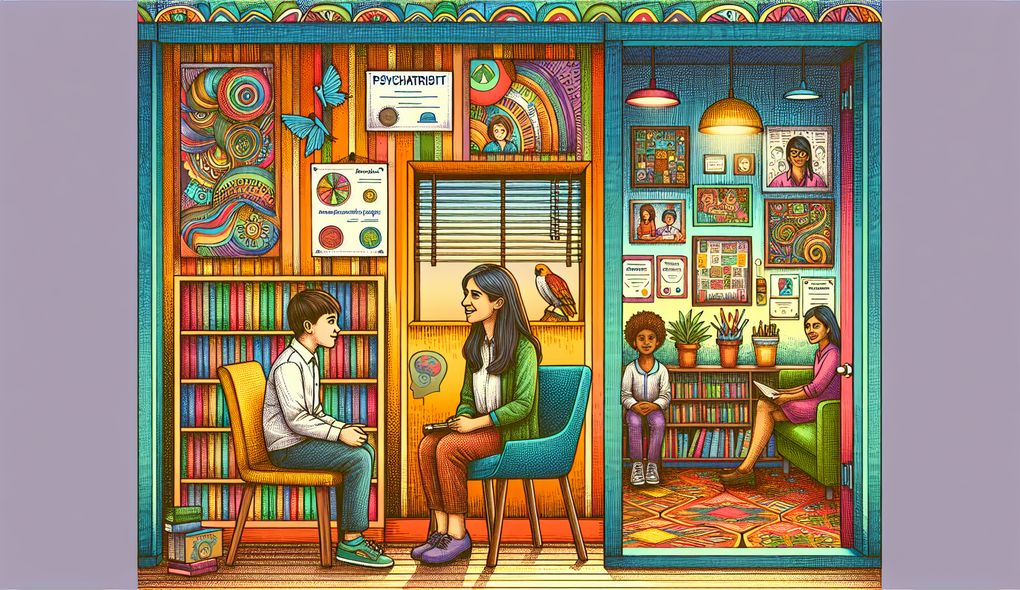How do you approach building rapport with young patients and their families?
SENIOR LEVEL

Sample answer to the question:
When building rapport with young patients and their families, I take a personalized approach. I start by introducing myself and creating a warm and welcoming environment where everyone feels comfortable. I make sure to listen attentively to their concerns and ask open-ended questions to encourage them to share more about their experiences. I also take the time to explain the diagnosis and treatment plans in simple terms, ensuring that both the child and their family understand what to expect. Additionally, I always make an effort to address any questions or concerns promptly and provide ongoing support throughout the treatment process.
Here is a more solid answer:
Building rapport with young patients and their families is one of my strengths. I prioritize open communication, empathy, and understanding in my approach. Firstly, I introduce myself and create a comfortable and safe environment for everyone. To establish a connection, I engage in active listening and ask age-appropriate questions to understand their unique concerns and challenges. By acknowledging their emotions and validating their experiences, I build trust and create a strong foundation for effective treatment. Additionally, I use simple and clear language to explain diagnoses and treatment plans, ensuring that both the child and their family fully comprehend the information. I also make myself available for any questions or concerns, providing ongoing support and guidance throughout the treatment journey.
Why is this a more solid answer?
The solid answer provides more specific details about the candidate's approach to building rapport with young patients and their families. It emphasizes the use of open communication, empathy, and understanding, which align with the evaluation areas and the job description. However, the answer could still benefit from more examples or anecdotes to further demonstrate the candidate's skills and experiences.
An example of a exceptional answer:
Establishing rapport with young patients and their families is a crucial aspect of my practice. I employ a holistic approach that blends empathy, active listening, and child-centered strategies to build strong relationships. From the initial meeting, I create a welcoming environment by engaging children in activities they enjoy, such as drawing or playing games. This allows me to quickly establish trust and create a positive association with the therapeutic process. I also educate families about the developmental stages and challenges faced by their child, providing them with tools and resources to support their mental well-being at home. By maintaining open lines of communication and involving families in the treatment plan, I ensure a collaborative and supportive approach. Additionally, I stay updated on the latest research in child psychiatry to offer evidence-based interventions and constantly strive to improve my practice.
Why is this an exceptional answer?
The exceptional answer goes above and beyond by providing specific examples and strategies that the candidate utilizes to build rapport with young patients and their families. It demonstrates a deep understanding of the evaluation areas and aligns with the job description's emphasis on empathy, understanding, and knowledge in child and adolescent psychiatry. The answer also showcases the candidate's commitment to ongoing learning and improvement. It paints a comprehensive picture of the candidate's expertise and capabilities.
How to prepare for this question:
- Familiarize yourself with developmental disorders and the unique needs of young patients. Understand the challenges they face and the appropriate treatment approaches. Stay updated on the latest research in child and adolescent psychiatry.
- Practice active listening and empathy in your daily interactions. Show genuine interest and validate the experiences and emotions of others.
- Reflect on your past experiences working with children and their families. Prepare anecdotes or examples that demonstrate your ability to build rapport and establish trust.
- Be prepared to discuss collaborative approaches in involving families in the treatment process. Highlight the importance of open communication and the benefits of a supportive network.
- Demonstrate your commitment to ongoing education and professional development. Discuss any relevant courses, certifications, or conferences you have attended.
- Highlight your ability to explain complex concepts in simple terms. Provide examples of how you have effectively communicated diagnoses and treatment plans to young patients and their families.
What are interviewers evaluating with this question?
- Communication and interpersonal skills
- Empathy and understanding towards the needs and challenges of children and adolescents
- Ability to build rapport with young patients and their families

